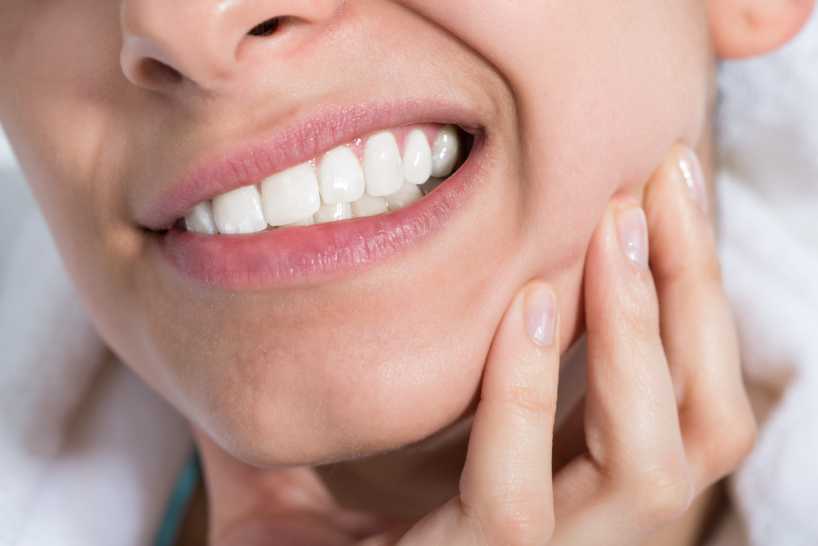Waking up in pain is the worst! You should feel refreshed after sleep, however when you have temporomandibular joint disorder (TMJD), you can wake up feeling anything but rejuvenated.
TMJD, often known as TMJ, is unique to each person, and the symptoms and causes are specific to the individual. One of the first ways to start addressing your disorder is to evaluate your sleep since some of the worst strain can happen overnight.
Best Positions for Sleep
The position you sleep in can influence a number of TMJ issues by straining the face, jaw and shoulder muscles. The type of pain can depend on how well your neck and head are supported, and if you are creating tension in your jaw by grinding or clenching your teeth in your sleep. However, if you suffer from sleep disordered breathing, you might need to sleep on your side, making sure your head and neck have enough support.
The worst position for TMJ is to sleep on your stomach, followed by sleeping on your side. Both can take your posture out of alignment. The best sleep position for TMJ is on your back. This helps by:
- Supporting your head, neck and shoulders
- Properly aligning the body
- Eliminating pressure on the jaw
- Reducing chances of grinding or clenching your teeth
What is TMJ?
TMJ refers to the temporomandibular joint (TMJ) that is the hinge that connects your jaw to your skull in front of each ear. It enables you to move your jaw up and down, side to side, and backwards and forward so you can talk, chew, yawn or swallow. Problems with the muscles and joints in this area are called TMJ disorders.
If you suddenly experience pain in your jaw, you might be alarmed, but chances are it’s not serious. Sore muscles and sudden jaw pain can be the result of a dental issue or strain. But are these symptoms of TMJ disorders?
Temporomandibular joint (TMJ) disorders occur when there are one or more problems within the joint that connects your jaw to your skull. The shock-absorbing disk that aids the jaw movement can become worn or slip out of alignment, or the muscles supporting the TMJ could be strained by grinding and clenching of your teeth while you sleep, for example. Both can cause sore muscles and jaw pain in a chronic fashion rather than a sudden onset.
Symptoms of TMJ disorders can include:
- Jaw tenderness
- Pain when opening or closing the mouth
- Pain or difficulty chewing
- Joint locking when the mouth is in a closed or open position
- Earache
- Clicking or popping when the jaw moves
Issues and habits that can cause pain and may lead to a TMJ disorder include:
- Clenching or grinding teeth
- Nail, cheek or lip biting
- Teeth misalignment or damage
- Jaw infection or injury
- Cartilage or tissue damage
- Sleep disordered breathing
It is not easy to find the specific cause of TMJ disorders since multiple factors may be involved. If you are exhibiting symptoms, make an appointment with Dr. Calkins, to gain more information visit the website: www.airwayandsleepgroup.com, we will start with an evaluation of your TMJ with the highest technology available and in conjunction with Magnetic Resonance Imaging. Dr. Calkins can evaluate the cause of your sore muscles and jaw pain, discover whether these are symptoms of TMJ, and prescribe remedies that can help.
Dr. Calkins at Airway & Sleep Group Can Help
If you are not feeling refreshed after sleep with temporomandibular joint disorder, and you have tried sleeping on your back, it may be time to schedule an evaluation appointment with Dr. Calkins at Airway & Sleep Group. We will analyze the cause behind your TMJ disorder and design a treatment plan for you.

